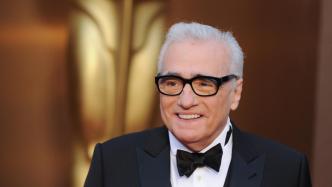
On November 17, the famous director Martin Scorsese (Martin Scorsese) ushered in his 80th birthday and entered his octogenarian age. In the previous week, the British "Guardian" published a hero post, inviting his film colleagues to celebrate his birthday, including Steve McQueen, Luca Guadagnino, Takashi Miike, Woody Allen, Tim Many directors, including Burton and Coppola, talked about their impressions of famous scenes in Scorsese's works or their impressions and details of interacting with him.
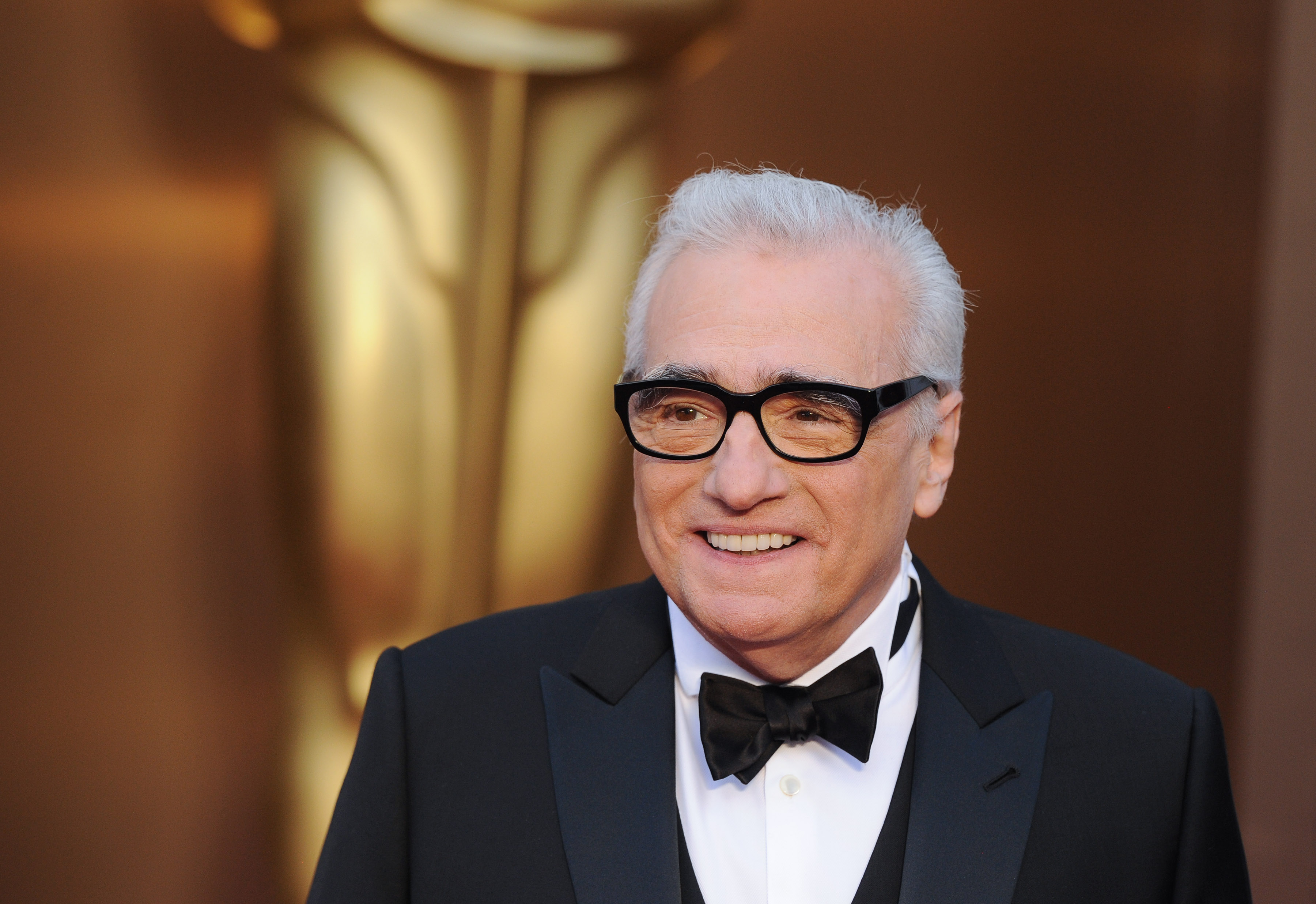
Martin Scorsese
Lynne Ramsay (Lynne Ramsay), British director, representative works: "What's wrong with Kevin", "You were never here"
There are so many famous scenes in Scorsese's movies, he is a master in this field, so if you ask me which scene in his works is my favorite, it is really difficult to choose. For example, "Are you talking to me?" in "Taxi Driver" or the scene where Robert De Niro calls Bessie, and De Niro watches the aspirin burst into the cup. Bubbles, or the directional camera shots in Mean Streets, are just too many.
Another characteristic of his films is that he is good at capturing the moment when the characters in the play misunderstand the world and the surrounding situation. "Every man must first go to hell before he can reach his heaven." In "Cape Fear", Max Cuddy played by De Niro said so, while the teenage girl Danielle played by Juliette Lewis said: I'm putting myself on the line. The scene is beautifully shot, giving you the feeling of being in the same place, full of uncertainty, not knowing what is going to happen next. There were obviously misunderstandings between the two, one was an innocent girl and the other was a psychopath, but for some reason, they were in the same room at this time, and there was a rather harmonious feeling, even from her point of view, there were some Romantic meaning.
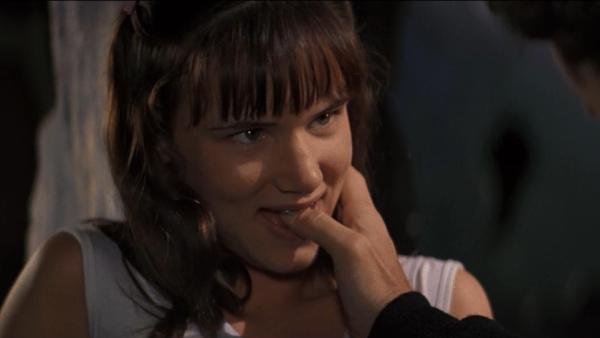
Danielle: Yes, that's right.
Max: The road ahead is long, I think I may have found a companion.
They only took one shot of the scene and Lewis knew that De Niro might be improvising a bit, but didn't know in advance that he was going to use his thumb mainly, first touching her cheek with his thumb, and then tucking in the whole in her mouth. Lewis made a good response, showing the mentality of the ignorant girl at this time to a vivid effect. A sheep enters the tiger's mouth, but the sheep does not know that it is a sheep at this time.
Steve McQueen (Steve McQueen), British director, representative works: 12 Years a Slave, Hunger
How to successfully introduce a scene, Scorsese is very capable in this regard. I especially love the part in Mean Streets where Robert De Niro walks into the bar for the first time and Harvey Keitel just looks at him.
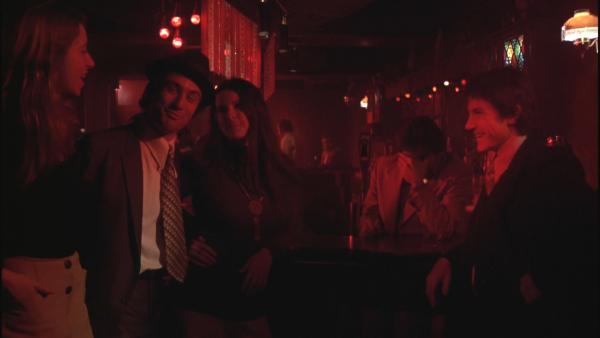
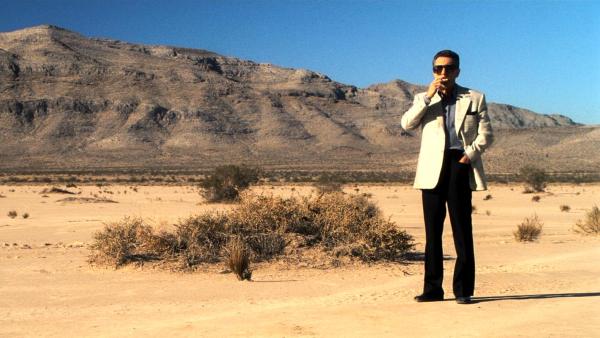
In short, the sportiness and physicality in Scorsese's films have influenced my later works. When I make films myself, the emphasis is on action rather than thinking. Because whether it’s writing the script or thinking about it, it’s all in the past. When we get to the shooting scene, we still have to shoot. So when I make a movie, I don't think about Tarkovsky, I don't think about Bergman, I think about how to act-and in this regard, Scorsese's movies have inspired me a lot. He's a man who makes movies, not just a director.
Luca Guadagnino (Luca Guadagnino), Italian director, representative works: "Call Me By Your Name" and "The Wind"
For me, Scorsese's films reign supreme and are something that I refer to from time to time when I make my own films.
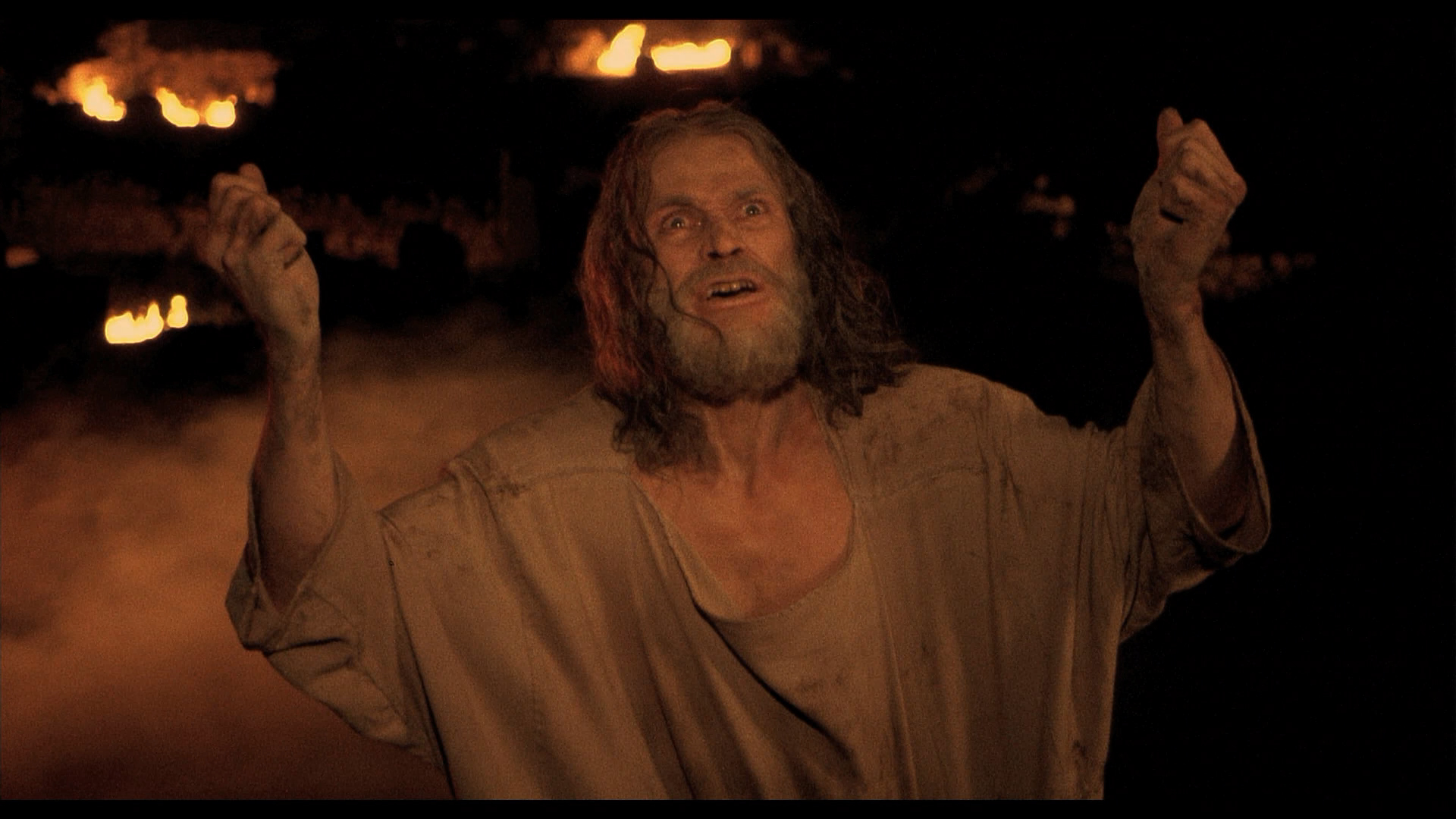
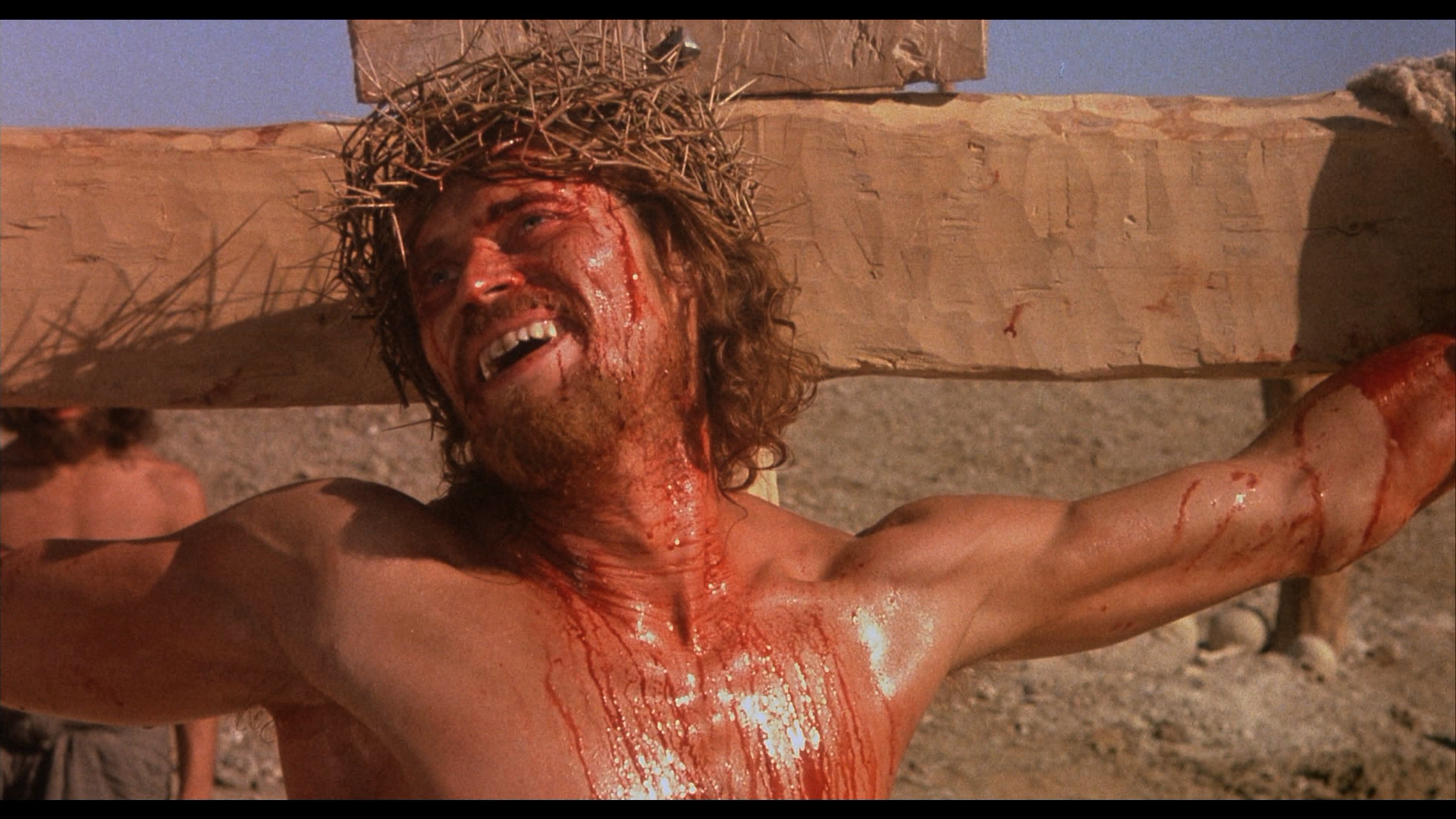
Screenshot at the end of The Last Temptation of Christ
I want to start with the ending of The Last Temptation of Christ, because that's my favorite Scorsese film, and one of my favorites is the last minute of the whole film: Christ asks why God forsaken Him. Then the scene changes, and he's back on the cross, and there's a super Scorsese-esque swipe shot to his close-up, waking him up from the previous dream, and waking us up. "It's done," Christ says, but the camera stays on him, and then Scorsese uses a special method to show the moment of his ascension to heaven. He caused the film to flash suddenly to signify the ascension of Jesus. It's so creative and so beautiful. He harnesses the power of film itself to recreate the life of Jesus Christ and his ascension to heaven, a concept that has an otherworldly appeal in itself. It also reminds me of the end of his later documentary "Shine a Light", where the camera went up, up, and up, and we also ascended into heaven together to the music of the Rolling Stones.
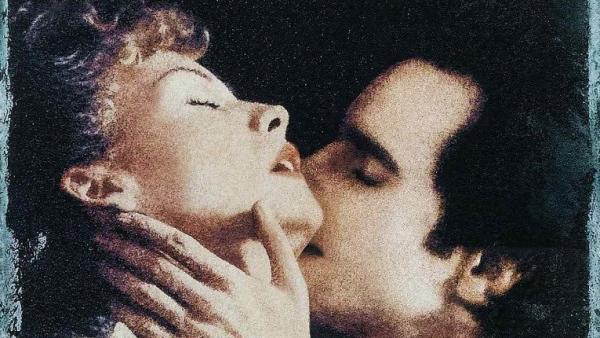
In my opinion, "The Age of Innocence" is one of the most violent movies ever made because it's about the suppression, the oppression, of humanity. If you don't understand, you can watch the banquet scene at the end of the film. They want to celebrate Olenska's return to Europe. Everyone in the room knew that in this case, she and Newland would be separated forever, and the way they ensured this was by throwing such a lavish dinner. Scorsese chose to shoot from the bottom of the table and all the way to the table, intending to show how exhausted the monsters are and how lonely and helpless the two protagonists are. This is their destiny, and they will lose their innocence forever.
Takashi Miike, Japanese director, masterpieces: "Killer Hajime" and "Thirteen Assassins"
My favorite is a scene in Raging Bull, shortly after the film starts, LaMotta loses to Sugar Ray Robinson, and then cuts to his house, his wife is frying a steak, and he and his wife are There was a quarrel, and the younger brother started to intervene, so LaMotta and the younger brother said, "Slap me in the face."
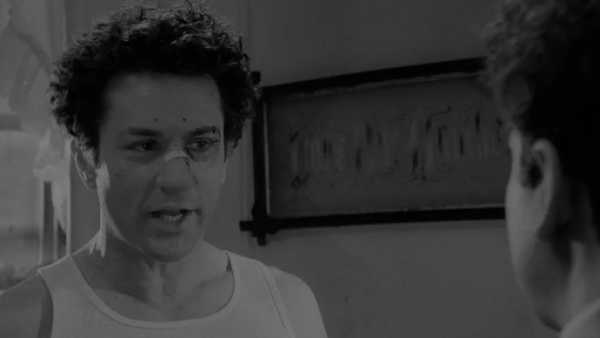
Woody Allen, American director, representative works: "Annie Hall" "Manhattan"
I like all the movies of Marty (Martin Scorsese's nickname), but "The Thieves" is definitely one of the best works in the history of American movies. It's a terrific movie, terrific. Rather than asking me to say which scenes are the best in it, it's better to say that I can't put it down the whole movie. I love the way it's shot, love the cast, love their wonderful performances, the whole production can only be described as outstanding. And I already liked it the first time I watched it. I have seen all of Marty's films, and they are all worth watching. There are not many directors like this in history.
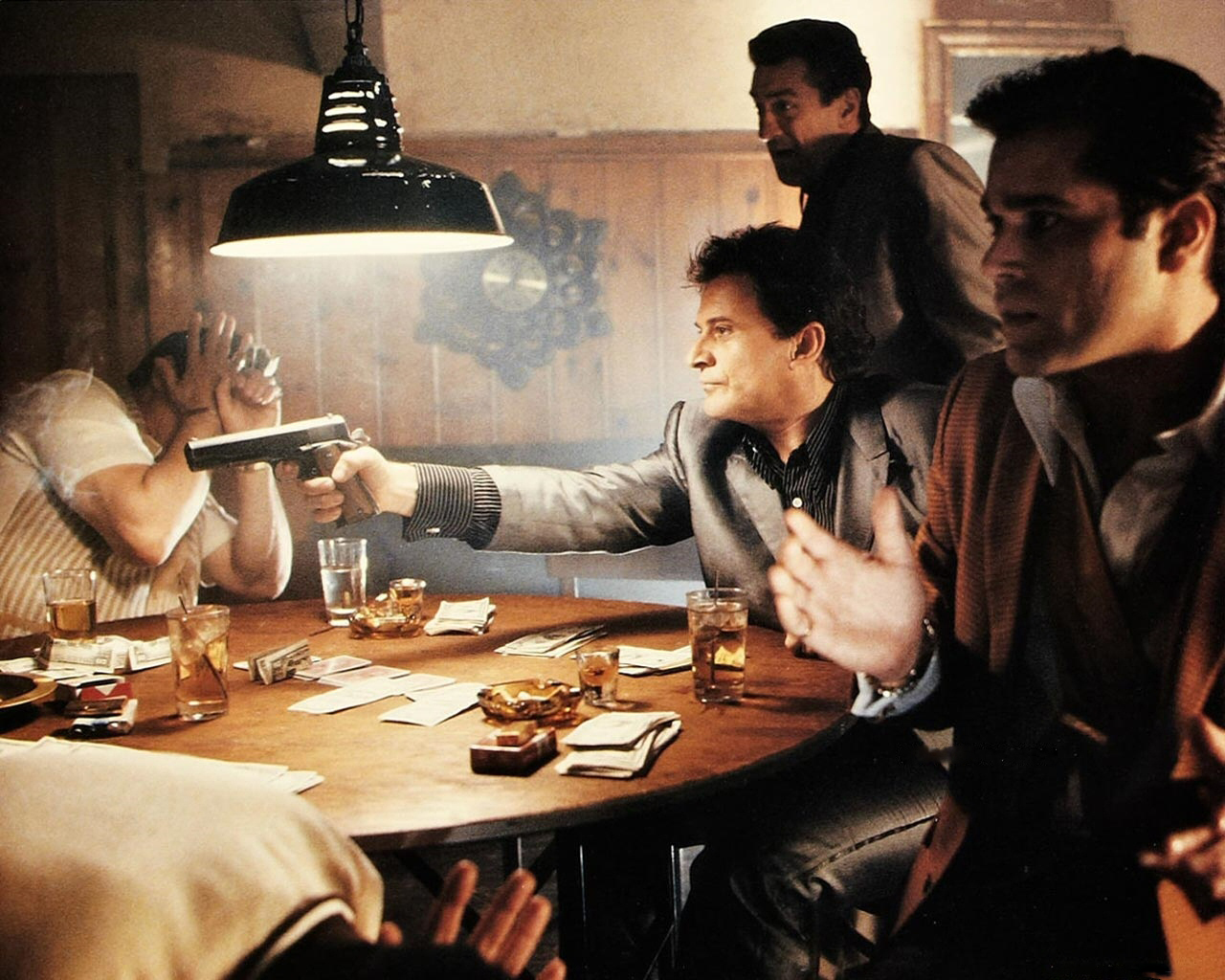
Stills of "The Thieves Are There"
We are very different. He was the poet of the dark side of Manhattan, and my way of seeing the city was a little more romantic. The reason for this difference, I think, is that his impression of Manhattan comes from his childhood experience growing up in the city center, while my initial impression of this city comes from those Hollywood movies. The impression New York made on him was very real, very exact, but the impression New York made on me stemmed from a lot of things that probably didn't exist at all. Of course, there might be a side of New York that does exist, but in any case, I certainly don't know it all, because I've always been like a squirrel, hiding in a corner of Brooklyn. But Marty has a deep understanding of the lower classes in Little Italy, so when he photographs the lives of these people, he is full of passion and eyes.
In 1997, The New York Times arranged for an interview between the two of us, and we were surprised to find out that we didn't know each other very well before that. As a result, we found that everyone lived in the Upper East Side of New York, only a few roads away, but we had never met them.
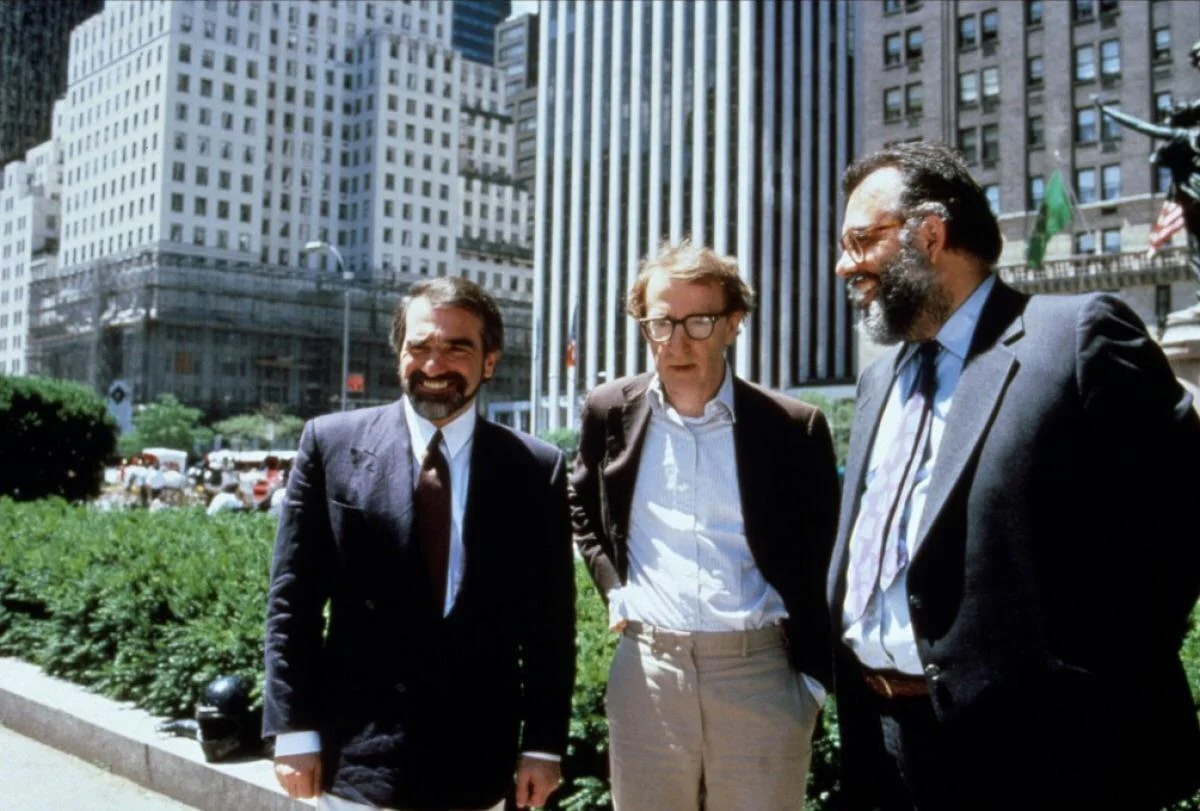
Martin Scorsese (left), Woody Allen (middle) and Francis Ford Coppola in New York in 1988
Abel Ferrara (Abel Ferrara), American director, representative works: "Bad Lieutenant" and "The Story of the Rivers and Lakes"
Are you going to write another essay on "Tell me about your teacher"? Haha, at least this time it's for a birthday celebration and not because someone else has passed away. I started making films when I was 16, and then I went to a big art school in New York. When I was studying in the film department, I made my own movies, but I rarely watched other people's movies, because I didn't think I could learn anything from them. One day, someone suggested that I must watch a movie called "Mean Streets", but on the same day, a friend advised me to watch "The Conformist". So taking advantage of a fine autumn day, I drove to the center of New York by myself. There were two theaters facing each other on 57th Street in Manhattan, which happened to be showing these two films respectively, so I finished watching Scorsese's " "Mean Streets" immediately went to see Bertolucci's "The Conformist".
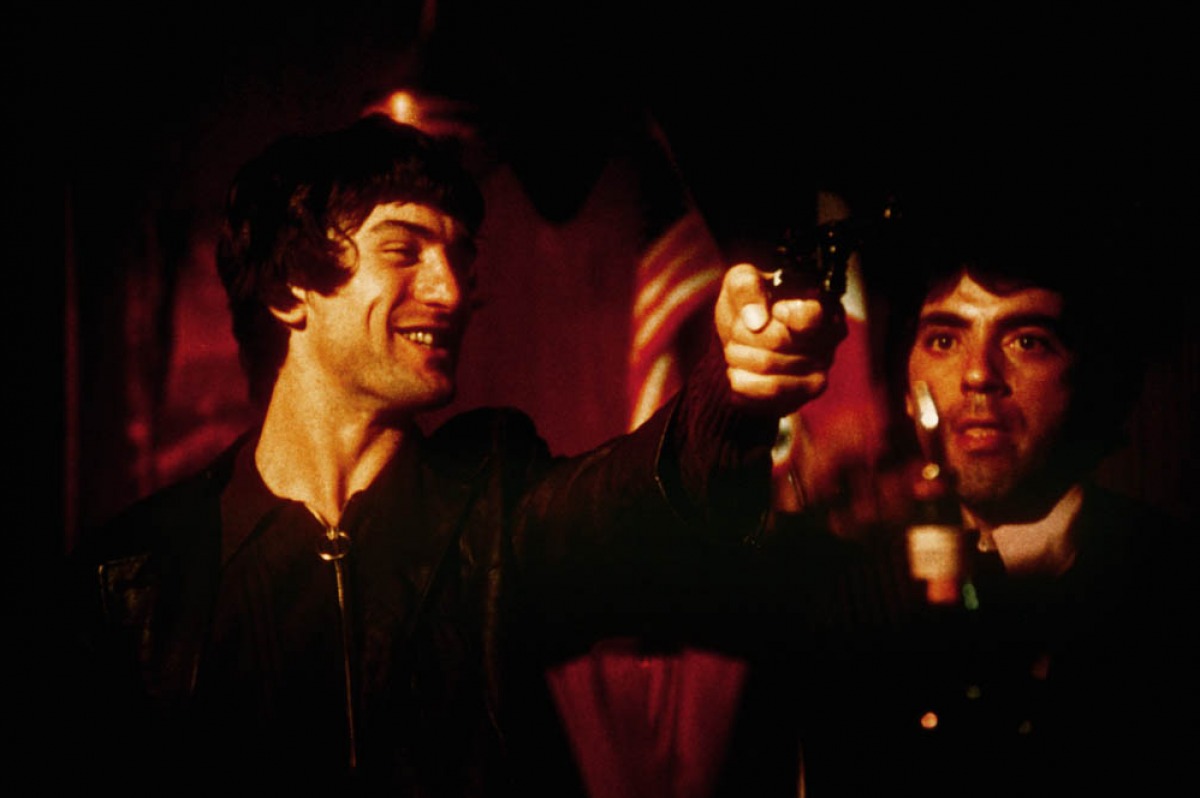
Stills from "Mean Streets"
All the way back, I was trying to digest what I had just experienced. It was dark, it started to rain, and the leaves fell. The wiper wiped regularly in front of the car window, and what I saw on the car window were those pictures and shots before. I knew that the things I was photographing, the student work I was photographing, were all meaningless. I couldn't tell if it was my car's Pirelli tires making noise on the slippery road, or if I was asking myself: how on earth did they make a movie like this?
Edgar Wright (Edgar Wright), British director, representative works: "Shaun of the Dead" and "Hot Blood"
What Scorsese means to me is hard to put into words. Because not only his movies give me various inspirations all the time, but more importantly, after his preaching, I realize that almost every movie has its own value and can give me inspiration.
Undoubtedly, he is one of the most influential directors who are still alive today, and he has brought us a lot of inspiration, but on the other hand, he always spares no effort to introduce us to the works of others, especially those that were originally somewhat An obscure director whom we ignore. I was quite excited to see that after introducing David Lean's classic works, he also recommended the horror films of Hammer Films without discrimination. This is Scorsese, not only making movies himself, but loving movies from beginning to end.
He's made a lot of movies (only a fool would think Scorsese only makes gangster movies) and I've learned so much about it and had fun doing it. I never went to film school, but with Scorsese's films and his in-depth, detailed introductions to his own films and other people's work, I always felt like he was giving me one-on-one lessons.
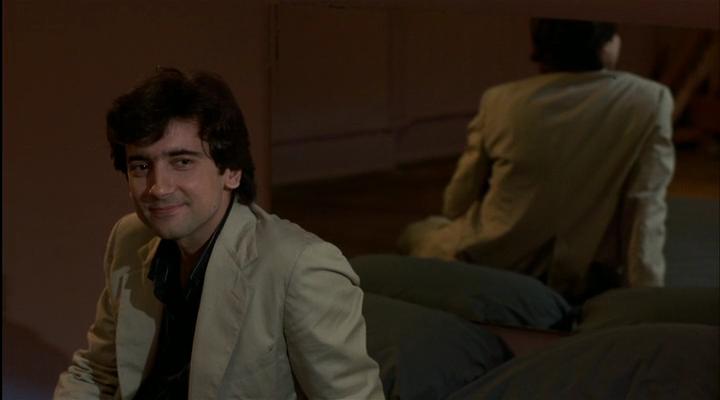
"After get off work" stills
It's not easy to give an example of which scene in one of his films moved me the most, and even a relatively obscure Scorsese work like After Hours actually has excellent ones. The camera movement, sharp editing, and brilliant score are forever etched in my mind since watching it as a young man.
We are lucky to have Scorsese, not just because of his movies, but because of what he has done for the history and future of cinema.
Ari Aster, American director, masterpiece: "A Midsummer Night's Horror"
I like the last forty minutes of "The Last Temptation of Christ". I like the richness and complexity of its emotions, with deliberate provocation and ambiguity, which can always surprise the audience and leave a lasting aftertaste. It includes Christ's shocking moment of doubt ("Father! Why have you forsaken me?"), and the ensuing silence that begins with a journey of his life that he has never experienced before. Then there's the tenderness with which Christ's guardian angel (Satan in an uncanny masquerade as a good child) kisses Jesus' wound, the sense of shock and solemnity that comes with Jesus having a child with Mary, and his subsequent relationship with Mary. The sense of strangeness and mystery that Lazarus' sisters combine to give us.
And, of course, the hidden glory of Harvey Keitel's Judas. In a sense, he is the protagonist of the film. He suffered as much as Christ, but the burden on his shoulders was even more difficult than Christ. In this character, what we see is not simply black and white, but the complexity of human nature. In fact, in Scorsese's movies, the image of Judas frequently appears in various incarnations, showing his Very strong interest in this character. As far back as "Mean Streets," Keitel played Judas in modern New York, and the pinnacle of such variants now belongs to the recalcitrant Kichijiro in "Silence" . "Silence" is definitely one of the greatest movies of this century, but it's a pity that the outside world doesn't know enough about it.
Speaking of the last forty minutes of "The Last Temptation of Christ", the most powerful thing is naturally the last moment of Christ's ecstatic death—"It's done!" An apocalyptic flare, accompanied by mournful cries and Peter Gabriel's triumphant and rhapsodic score. The ending credits appear on the orange screen, which is reminiscent of flames, and it is also a reflection of the film's sensitivity to popularity; One of the clearest expressions of Cosese's love of cinema and religious devotion.
Kevin Macdonald (Kevin Macdonald), British director, representative works: "The Last Dictatorship" and "Ladder to Heaven: The Art of Cai Guoqiang"
My favorite scene in a Scorsese film? Two and a half minutes of uninterrupted long shots, vivid characters, Italian-style food, a journey through the kitchen... Do you think I'm talking about the famous scene in "The Thieves and the Tao"? No, I'm talking about the opening scene of his 1974 documentary Italianamerican. If you want to know what kind of film director Scorsese is and what kind of influence he has received, this paragraph is enough.
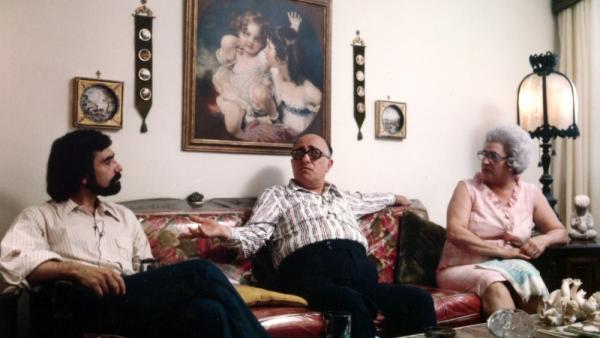
When Catherine asked her husband to move to the other side of the sofa (“Why are you so far away from me? Come closer. No, you lean over…”), the helpless expression on Charles’s face implied some kind of fear. Will be "thumped" (the kind between husband and wife). The couple's tone of voice will be familiar to anyone who has seen a Scorsese film. Especially when Catherine asked her son, "Do I want to talk to you?", I immediately remembered the scene in "Taxi Driver" where De Niro asked himself in front of the mirror. I believe I am by no means the only one.
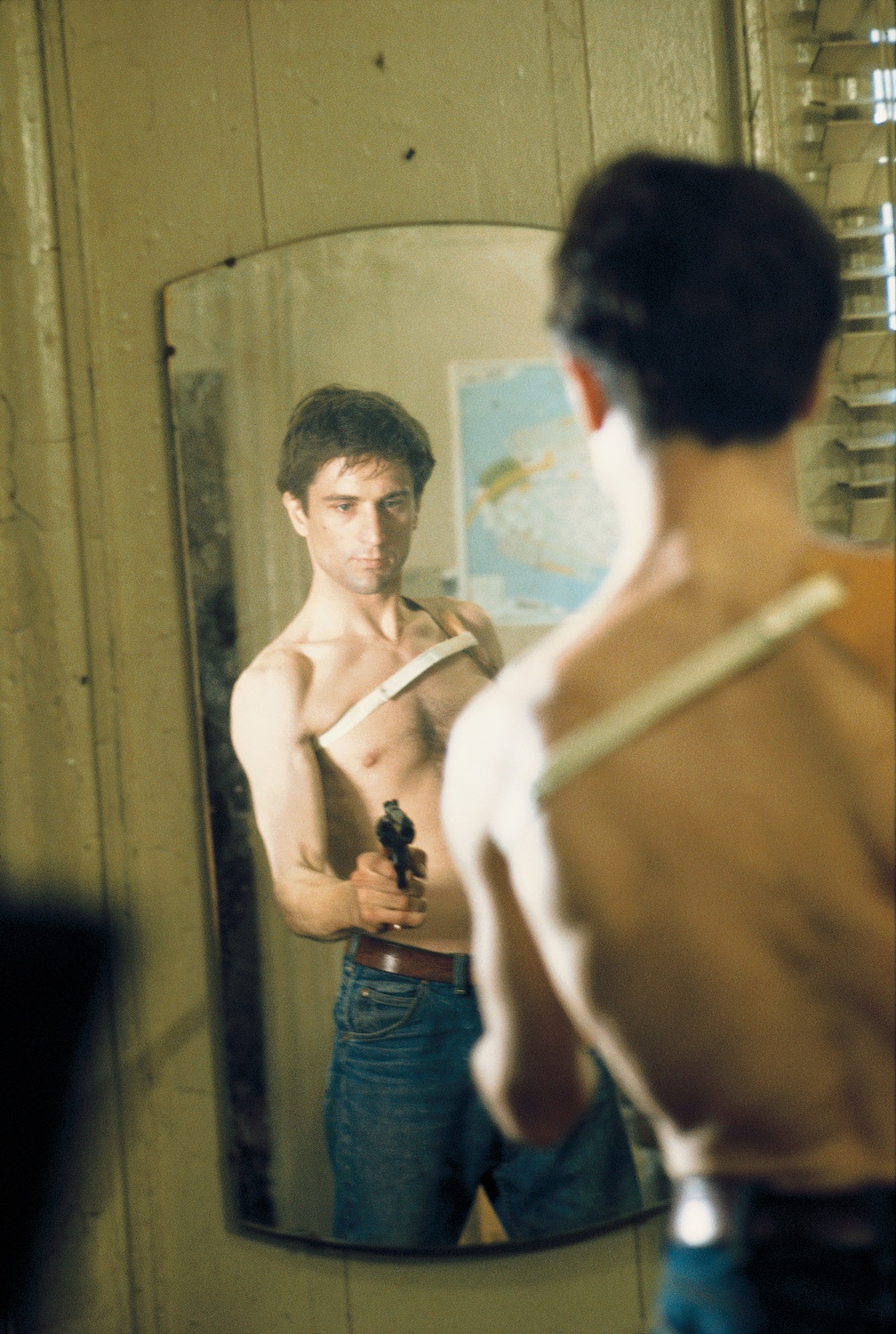
"Taxi Driver" stills
Tim Burton (Tim Burton), American director, representative works: "Edward Scissorhands" "Big Fish"
When I think of Scorsese, I think of all the things in his movies that make people feel uncomfortable. He is a master at this. For example, the scene in "The King of Comedy" where De Niro went to Jerry Lewis' house uninvited. That kind of atmosphere is really unbearable to watch.
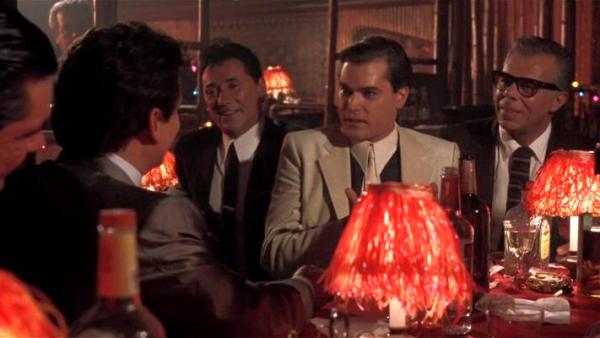
Interestingly, Scorsese in real life is very different from the characters in his movies. We've only met once, and when I'm with him, I'm pretty relaxed. He is very passionate about movies and very knowledgeable. He said he had a set of film copies of my Beetlejuice in his personal library.
Kelly Reichardt, American director, masterpiece: "The First Cow"
I rewatched "Taxi Driver" the day after the stranger broke into the Pelosi's home. It is raining outside the window. Steam was coming from the manhole covers on Third Avenue. It's nearly election time again. At the campaign headquarters of presidential candidate Charles Palandine, Albert Brooks, wearing a canary yellow shirt, had his foot on the desk. He was on the phone with the manufacturer of the button badge. The lettering on the badge was wrong, but he didn't want to argue. "We won't pay. We throw the badge away," he told the manufacturer.
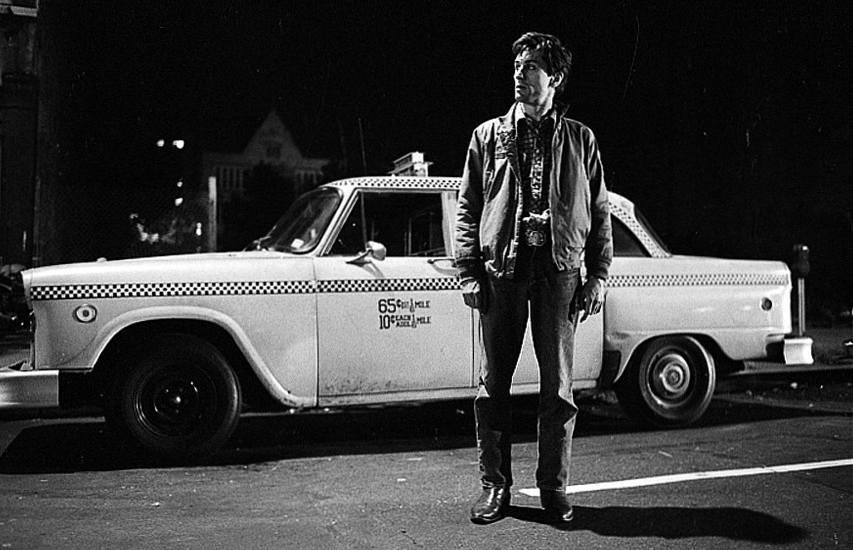
"Taxi Driver" stills
A yellow cab hovers outside the glass doors of the campaign headquarters. The Vietnam veteran who drove it, Travis Bickle, wanted someone to clean up the city. Sometimes the smell alone gives Travis a headache. He stared through the glass door at Cybill Shepard, the blond and blue-eyed. "Look over there, do you see something wrong?" she asked Brooks. A blue bus passes in front of a girl in a yellow raincoat. The traffic light turns red. Steam was coming from the manhole covers on 42nd Street.
Travis nearly bumps into Iris, a child prostitute, as she crosses the street. It was getting late. A girl her age should sleep at home. Travis is in his yellow cab. Iris is wearing her big hat and white flared trousers. Paul Pelosi is sleeping at home. Iris is on drugs and is in a mess. Travis was restless, eating junk food, and energized. He is carrying a gun. Pelosi wants to grab the hammer. "I'll just ask you one thing, Travis, what annoys you the most in this country?"
Francis Ford Coppola (Francis Ford Coppola), American director, representative works: "The Godfather Trilogy" "Apocalypse Now"
Scorsese and I have known each other for a long time. When we met for the first time, there was a feeling of seeing each other late, like finding a long-lost distant cousin. He's Italian-American like me, and has the same style: the same kitchen smells, the same parents, the same sense of being both Italian and American.
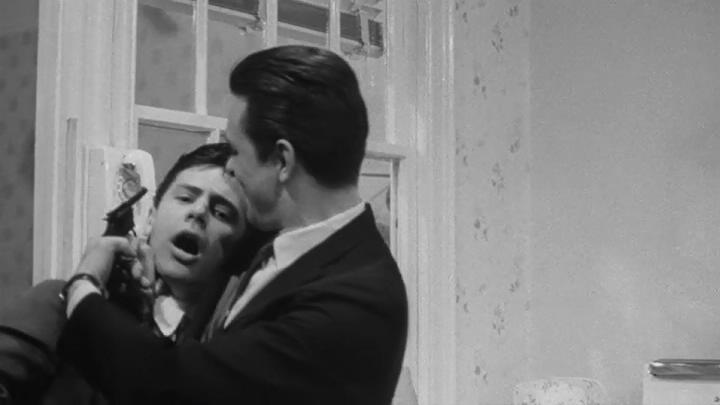
Stills of "Who's Knocking at My Door"
"Who's Knocking at My Door" was the first Scorsese film I saw, and I loved it. I love every movie he's made since then, and I've seen them all come to life.
Scorsese is the best film teacher in the world, and one of the greatest directors still making films in the world. Happy birthday to him and wish him a wonderful new decade.